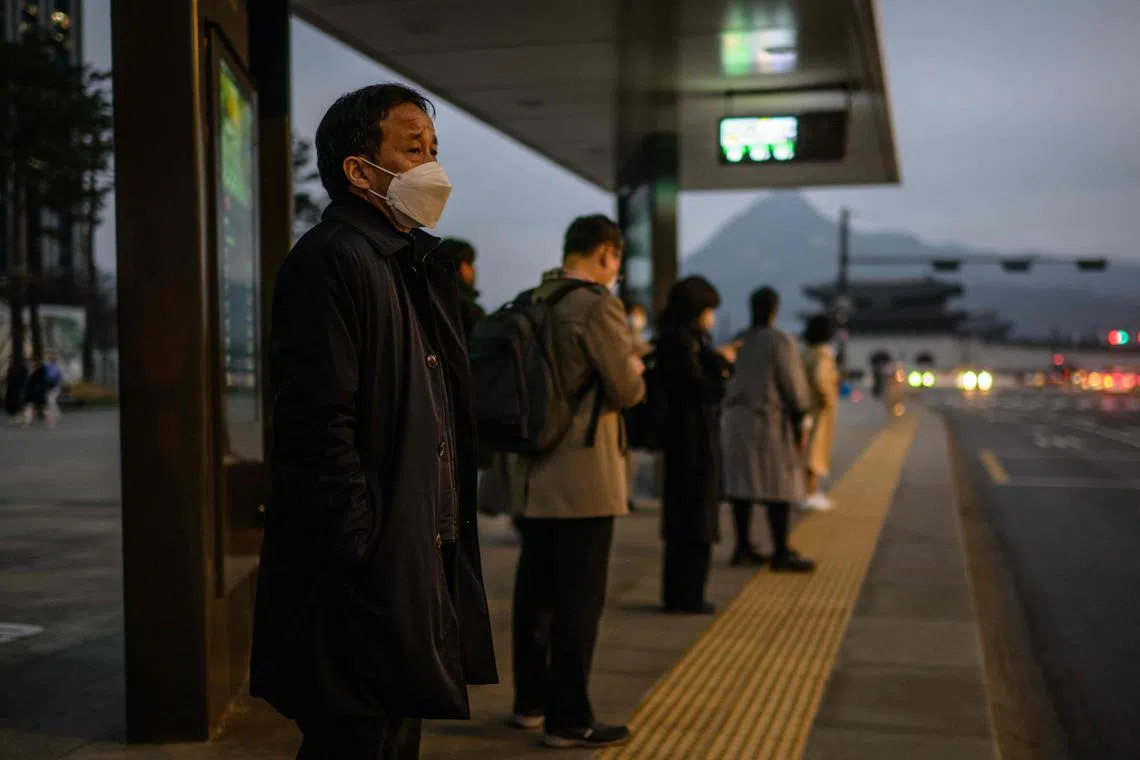South Korea’s Yoon hints at keeping cap on weekly working hours below 60
Sign up now: Get insights on Asia's fast-moving developments

South Koreans worked an average 1,915 hours a year per employee in 2021.
PHOTO: AFP
SEOUL - President Yoon Suk-yeol views a workweek of 60 hours or longer as “excessive”, the presidential office said on Thursday, adding that he has ordered for further adjustments to be made to the reform proposal.
The Ministry of Employment and Labour’s plan unveiled earlier in March aimed to allow workers in South Korea to extend their working hours in a week
The President expressed regrets over the plan drafted without an “adequate legal cap” over how long a worker could work during peak seasons, although the proposal is meant to force employers to compensate for overwork during downtime, according to a spokesman.
“Concerns have been raised about the government proposal that could turn a blind eye to the longer working hours of employees,” the spokesman said at a briefing on Thursday.
Mr Yoon’s remark was delivered before he left for a summit in Tokyo on the same day.
The comment was widely viewed as his administration backtracking on the flexible workweek policy proposal after drawing ire from the public.
South Korea is already the most overworked country in Asia, and this has thrown cold water on workers wanting to start families and raise children.
Additionally, younger people are increasingly being left displeased over the hard-driving workplace culture that has long sustained the “Miracle on the Han River” – a driver behind Korea’s meteoric rise from the ashes of the Korean War.
Mr Yoon reiterated his calls for the Labour Ministry to reflect the voices of millennials and Generation Z, or roughly those born since 1981.
Labour Minister Lee Jung-sik on Wednesday met labour union representatives for the younger generations to collect opinions, soon after Mr Yoon’s order to do so.
Mr Lee said he is “open to all possibilities” for changes in the proposal.
South Koreans worked an average 1,915 hours a year per employee in 2021.
That figure was 199 hours more than the average for Organisation for Economic Cooperation and Development member nations.
Working hours per year decreased by 127 over the span of 2017 to 2021, as a 52-hour workweek was introduced in 2018 with a cap on working hours per week. THE KOREA HERALD/ASIA NEWS NETWORK


